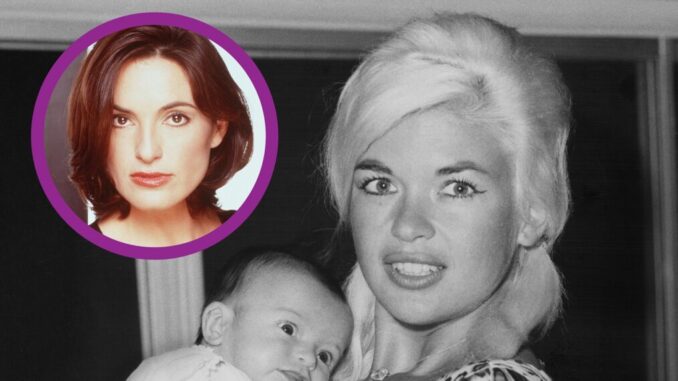
The Ghost in the Passenger Seat: Mariska Hargitay, Jayne Mansfield, and the Echoes of Trauma
Mariska Hargitay’s name is synonymous with strength, resilience, and the unwavering pursuit of justice as Detective Olivia Benson on “Law & Order: SVU.” But behind the character's powerful facade lies a personal history etched with profound loss and a near-miss with death that continues to resonate decades later. The recent documentary chronicling her life unveils the chilling reality: at just three years old, Hargitay was a passenger in the car crash that claimed the life of her glamorous mother, actress Jayne Mansfield. She survived, a silent witness to tragedy, forever linked to the specter of that night and the enduring legacy of a mother she barely knew. This story is more than just a celebrity anecdote; it's a testament to the enduring power of trauma, the complicated process of healing, and the strength required to forge a life in the shadow of such a devastating event.
The documentary illuminates the inherent paradox of Hargitay's early life. On one hand, she was a child of Hollywood royalty, bathed in the reflected glow of her mother’s star power. Mansfield, a platinum blonde bombshell, embodied the glitz and glamour of the era, a Marilyn Monroe rival who radiated undeniable charisma. Yet, this seemingly idyllic existence was abruptly shattered on a dark stretch of highway. The image of the crumpled Buick Electra, forever imprinted on the collective memory, stands as a stark reminder of the fragility of life and the sudden, brutal nature of loss.
For Mariska, the event was not a clear, remembered narrative, but rather a fragmented mosaic of sensations, whispers, and lingering fear. Growing up without a mother, surrounded by the whispers of a tragic accident, must have been a constant exercise in piecing together a narrative that was both deeply personal and intensely public. The film explores how the absence of Mansfield shaped Hargitay's identity, her relationship with her siblings, and her own choices in life. The documentary suggests that the absence of a guiding maternal figure forced her to develop an inner strength, a self-reliance that would later become a defining characteristic.
The shadow of the accident also cast a long shadow on Hargitay's career. While she initially struggled to break free from her mother's image, she eventually carved her own path, ironically through a role that deals with the darkest aspects of humanity. Playing Olivia Benson, a character who confronts trauma head-on, may have been a way for Hargitay to process her own experiences, to find meaning in the face of unspeakable tragedy. The documentary hints that the empathy she brings to the role is rooted in a deep understanding of suffering, born from her own personal experience with loss and survival.
Furthermore, the documentary is not simply a recounting of a tragic event. It delves into the complex emotional landscape of surviving trauma. Hargitay's journey, as depicted in the film, highlights the importance of acknowledging and processing grief, the challenges of living with survivor's guilt, and the potential for growth and healing. It suggests that while the pain of loss may never completely disappear, it can be integrated into one’s narrative, transformed into a source of strength and resilience.
The documentary also serves as a poignant reminder of the impact of trauma on families and communities. The ripple effects of the accident extended far beyond Mariska, affecting her siblings, her father, and the broader Hollywood community. The film underscores the importance of providing support and understanding to those who have experienced trauma, and the need to break the silence that often surrounds grief and loss.
In conclusion, Mariska Hargitay’s documentary is a powerful and moving testament to the enduring human spirit. It’s a story about surviving a horrific accident, navigating the complexities of grief and loss, and ultimately, finding meaning and purpose in the face of unimaginable tragedy. The ghost in the passenger seat may always be present, a constant reminder of what was lost, but it also serves as a catalyst for growth, resilience, and a unwavering commitment to making a difference in the world. The film underscores that even in the darkest of nights, the human spirit can find a way to shine, to honor the past, and to build a brighter future.
